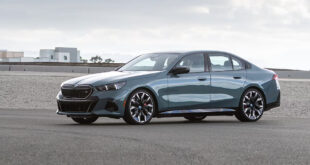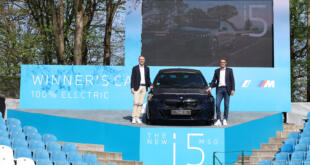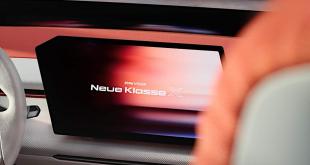In-house production of fuel cells for the BMW iX5 Hydrogen will commence today at the company’s Munich headquarters. Despite initial setbacks, BMW is continuing its fuel-cell development. BMW has also announced that the BMW iX5 Hydrogen testing trials will begin this year. There will be a small fleet of hydrogen-powered SUVs for demonstration and testing.

BMW AG Development Board Member Frank Weber stated that the company’s extensive investment in R&D over many years has allowed them to maximise the potential of hydrogen technology. This BMW iX5 Hydrogen’s second-generation fuel cell power was doubled while dimensions and weight were reduced.
Further, BMW has established an in-house hydrogen competency centre where it will produce highly efficient fuel cell systems. Toyota supplies the individual fuel cells used to produce the BMW iX5 Hydrogen. There are two primary processes involved in creating a fuel cell system. First, a fuel cell stack is built from the individual fuel cells. The next phase is putting together the remaining parts of the fuel cell system.
Stacking fuel cells is automated. After checking for broken parts, a five-ton machine crushes the stack before placing it in a container. For this purpose, a technique tailored to this low-volume vehicle pours molten aluminium into a mould of compressed sand mixed with resin. A pressure plate constructed from cast plastic components, light-alloy castings, and the Landshut facility transports hydrogen and oxygen to the fuel cell stack. The stack housing is protected from air and liquid leaks by gas- and watertight seal created by the pressure plate. Once built, fuel cell stacks undergo chemical and voltage testing. Finally, all the parts are assembled, then Compressor, anode, cathode, high-voltage coolant pump, and wire harness are added.
 BMW.SG | BMW Singapore Owners Community The Ultimate BMW Community – Established Since 2001
BMW.SG | BMW Singapore Owners Community The Ultimate BMW Community – Established Since 2001













